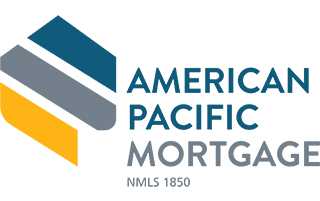Reduce Your Tax Burden by Deducting Loan Origination Fees from your Taxes
Buying a new house is expensive. Not only do you have to come up with a down payment in order to close on the home, but you’ll also have to pay for closing costs, which typically vary from 2 to 5 percent of the home’s price. These closing costs consist of a number of different fees, the largest of which is the loan origination fee. Fortunately, this fee is something that you may be able to deduct from your taxes.
What Exactly are Loan Origination Fees?
The loan origination fee is essentially the commission that the lender receives for helping to prepare your application and processing your mortgage. Officially, it’s the fee for processing your home loan application. Usually, the loan origination fee amounts to roughly 1 to 2 percent of the total loan amount. This means that if you borrow $300,000, the loan origination fee will likely be between $3,000 and $6,000. Some lenders refer to the fee in points, in which case 1 percent equals 1 point.
Other Typical Names under Origination Fees:
Origination fees sometimes have different names depending on the lender. These fees may all be bundled into one line term or itemized. Some of the common names you might find the origination fees under include application fees, underwriting fees, or processing fees. Whatever term is used by the lender, it typically includes fees for the following tasks:
- Collecting the documents you need and organizing them.
- Verifying that all of the documents you’ve provided are accurate.
- Requesting the necessary information from employers, IRS, and other organizations or individuals.
- Analyzing all of your qualified income, such as self-employment earnings, deductions, rental income, and more.
- Making sure that your application meets the requirements if you’re applying for government-backed loan programs.
Origination Fee Vs. Points
There are two types of points. There are the loan origination fee points (as previously mentioned) and then there are discount points. Discount points are basically pre-paid interest on your loan. By purchasing discount points, you can buy down your interest rate. This means that if you have one point, your interest will be lower than if you had zero points. It can be easy to get them confused, which is why you should make sure your lender clarifies which type of points they’re talking about when discussing points.
Deducting Home Loan Origination Fee From Your Taxes Through The Point System
Although there are some restrictions, you can write off the interest that you pay on your home mortgage. You might wonder if it’s worth paying for discount points to lower your interest ahead of time if it eliminates the ability to write off a higher interest rate. Fortunately, the IRS considers both discount points and loan origination fee points as pre-paid interest, which means you can write off the points as mortgage insurance.
Taking Tax Deductions
When it comes to writing off points, you have two options–you can write them off over the course of the loan’s duration or you can write them off all at once in the year that you bought the home. However, there are a number of requirements you’ll need to meet to take the deduction in the first year.
Conditions to Meet to Get the Full Deduction
The conditions you will have to meet to take the full deduction within the first year of buying your home follow:
You Must Use The Cash Method
The cash method refers to a form of accounting in which you report income in the year you receive and deduct expenses in the year that you pay them. This means that to get the full deduction, you will need to write off the points within the year that you closed on your home.
You Must Have Used The Mortgage To Purchase Or Build Your Main Home
The loan must be used for either buying or building a house that acts as your primary residence. This means that you cannot write off your points if you are using the loan towards a vacation home or on an investment property.
You Must Have Secured The Mortgage Loan With Your Main Home
If you are taking out a home equity loan, you can also write off your points as long as the loan is for your primary residence.
Point Charging Is An Established Business Practice In Your Area
If lenders don’t typically use the point system in your area (some lenders simply use percentages when charging loan origination fees and may not offer discount points), then you cannot write them off.
The Deduction Doesn’t Exceed The Number Of Points Usually Charged In Your Area
Essentially, the IRS is making sure that you don’t try to game the system by writing off more points than borrowers are typically charged.This is why your deduction can’t exceed the number of points usually charged in your area.
You Didn’t Borrow The Funds Used To Pay The Points
You will need to purchase your points directly from the lender. This prevents borrowers from just borrowing money from the lender to purchase points (and rolling that money they borrowed into the loan), allowing them to take advantage of a tax deduction.
The Settlement Statement Gives The Amount Of Points Paid For The Closing
The settlement statement needs to account for the points you’ve paid for when you close. This prevents you from purchasing points following the closing to lower your rate and take advantage of the write-off.
The Points Are A Percentage Of The Amount Of The Mortgage’s Principle
Each point must be equal to a percentage point of the amount of the mortgage’s principle. If the lender uses a different system to provide value to the points, then you cannot write them off.
Important Things To Consider When Deducting Loan Origination Fees From Your Tax
If you decide to amortize your points over the term of your mortgage and you end up selling your home or refinancing, then you can deduct any points you didn’t previously deduct in the year that you sell the house or refinance it. It’s also worth noting that points don’t have to be purchased or deducted as whole points. For example, half a point can be deducted since this is half a percentage point.
Conclusion
Loan origination fees can be expensive, but it’s helpful that they can be written off in addition to any discount points that you purchase. Remember that not all lenders charge loan origination fees and that the fees vary from lender to lender. You may even be able to negotiate with lenders the final cost of your loan origination fees.
The views, articles, postings, and other information listed on this website are personal and do not necessarily represent the opinion or the position of American Pacific Mortgage Corporation or US Lending Company.
* For loan examples and more information visit our disclosure page at https://www.uslendingcompany.com/disclosures/





